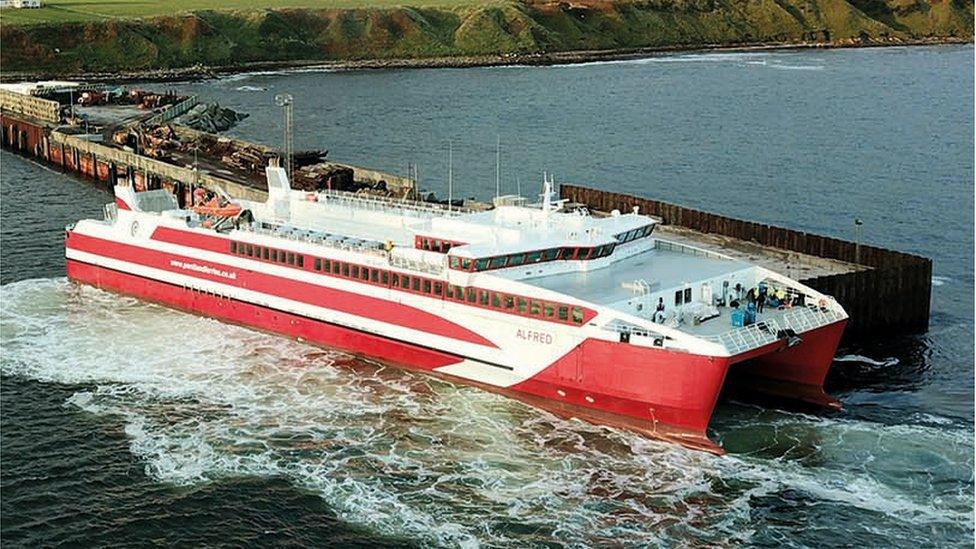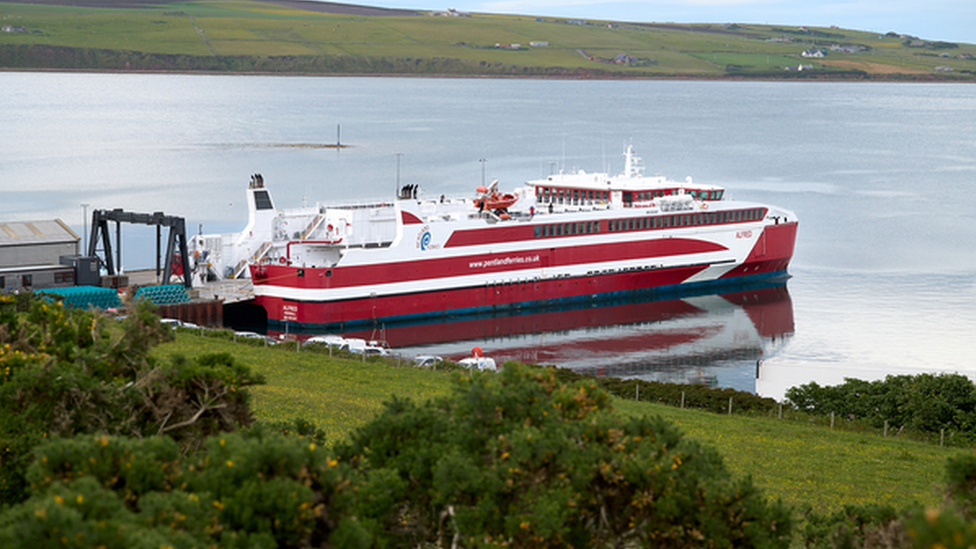Ferry disruption after safety fears at Ayrshire port
- Published

The Irish Berth is the only one at Ardrossan suitable for the catamaran MV Alfred
Ferry services are facing more disruption after safety concerns at Ardrossan harbour in North Ayrshire.
The Irish Berth is out of action until at least 24 January following an inspection by divers.
The closure affects services to Arran because it is the only berth at the harbour which can be used by CalMac's chartered catamaran MV Alfred.
The main berth is still operating and a second CalMac ferry MV Isle of Arran will continue to sail to Arran.
Finlay MacRae, head of operations for CalMac, said the operator had been advised by the port's owner, Peel Ports, that the berth would have to shut for "critical inspections".
He said: "Unfortunately, this means that we have had to withdraw MV Alfred from service as the vessel is only suitable for the Irish berth.
"Any affected customers are being contacted and moved to MV Isle of Arran when space allows. MV Isle of Arran will continue to operate the core Arran service from the main berth in Ardrossan to Brodick."
Anyone needing to travel urgently for things like medical appointments should contact their local port office, he added.
Peel Ports apologised for the inconvenience but said safety had to be its priority.
Redevelopment paused
The problems are the latest to befall the North Ayrshire harbour which requires a major redevelopment before it is suitable for the two new CalMac ferries being built at the Ferguson shipyard in Port Glasgow.
Funding was due to be shared by Peel Ports, North Ayrshire Council and the Scottish government - but those plans were paused last summer after the estimated £35m-£40m costs rose significantly.
Inflation and added complexity were cited as the reasons.
The Scottish government is now reviewing the scope of the work required.
The two dual-fuel ferries Glen Sannox and Glen Rosa, due for delivery later this year and next year, will instead begin their working life operating out Troon which will not have specialist facilities for LNG refuelling.
The ships can still be refuelled from tankers, although this is a longer process and could cause scheduling problems because the tankers will have to be driven up from an LNG terminal in Kent.
Related topics
- Published6 November 2023

- Published19 April 2023
